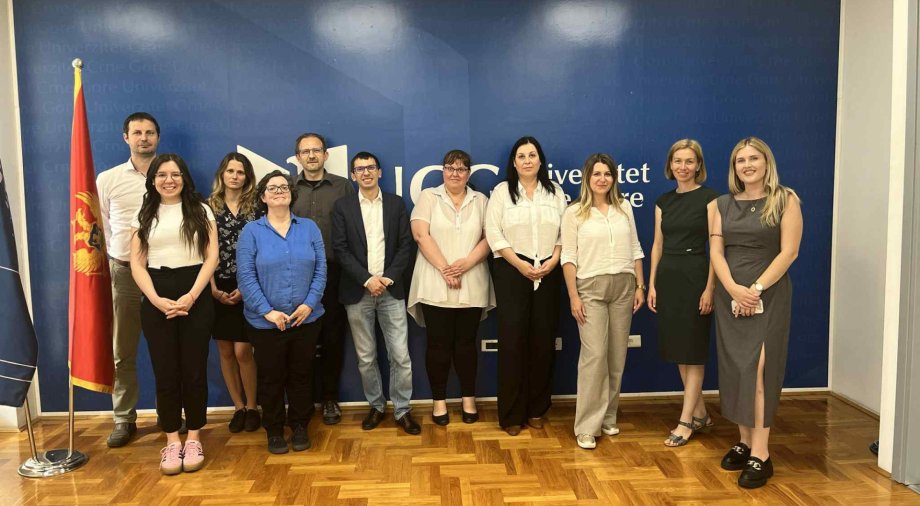Partner Meeting in Podgorica with Universities from Six Countries

The 2nd in-person partner meeting was held on 5–6 June 2025 in Podgorica, Montenegro. Participants included delegates from the University of Pécs, Masaryk University, J. Selye University, Jagiellonian University, University of Sarajevo, University of Montenegro, and Pannon EGTC.
The event marked an important milestone in the implementation of the project, which brings together higher education institutions from the Visegrad and Western Balkan countries to collaboratively develop strategies for tackling climate change through academic cooperation.
The main objective of the project is to promote long-term and meaningful cooperation between universities in the fields of education, research, and third mission activities, with a focus on their roles in regional development and the green transition.
The Podgorica meeting focused on finalizing two major deliverables:
the Situation Analysis, offering a comparative overview of climate adaptation strategies across partner institutions, and
the Best Practice Repository, compiling successful institutional initiatives and innovations that can be scaled or adapted in different contexts.
Participants jointly reviewed, discussed, and refined these documents and also launched the development of a joint Green Transition Action Plan, aimed at institutionalizing sustainability-focused collaboration and establishing a roadmap for future joint activities.
Highlights of the meeting included presentations by representatives of the University of Montenegro, Jagiellonian University, Masaryk University, J. Selye University, and Pannon EGTC. Special attention was given to student perspectives, including the presentation “Empowering the Green Transition: The Voice and Role of Students”, delivered by a representative of the Student Parliament of the University of Montenegro.
Another notable contribution came from Jelena Peruničić, Project Manager at Deutsche Gesellschaft für Internationale Zusammenarbeit (GIZ), who spoke about international opportunities for sustainable development in the Western Balkans.
As part of the program, participants attended a campus tour, a networking dinner, and a moderated brainstorming session to explore future joint projects and funding opportunities under regional, EU, and international schemes.
The ultimate aim of the project is to empower universities to act as catalysts for climate-conscious development and knowledge exchange, reinforcing their roles as active agents of societal transformation.
The forthcoming Green Transition Action Plan will outline the strategic directions for joint implementation, including timelines, responsibilities, and methods of dissemination across academic and policy-making communities.
The meeting demonstrated not only the intellectual commitment of all involved partners but also the potential of the academic sphere to lead by example in times of environmental uncertainty and green innovation.
The project is co-financed by the governments of the Czech Republic, Hungary, Poland, and Slovakia through Visegrad Grants from the International Visegrad Fund, whose mission is to advance ideas for sustainable regional cooperation in Central Europe.

